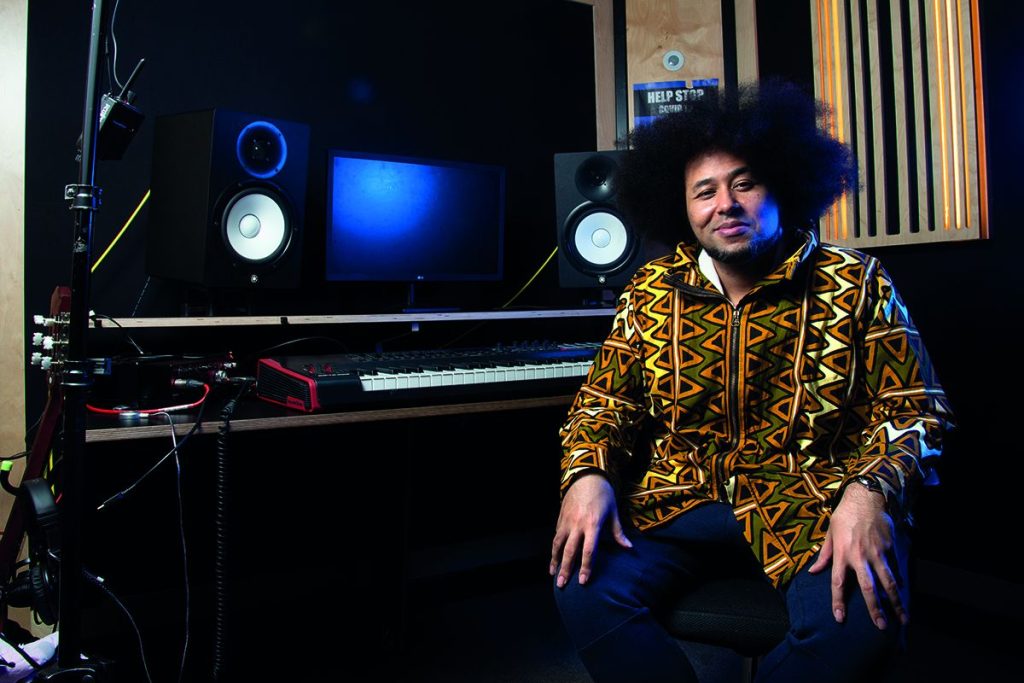Rapper’s delight

Dr Chima Anya describes the parallels between practising medicine and performing music
7am
‘Woke up from dreaming, I wanted to sleep in but there’s just so much to do.’
The opening lyrics from my single Do Less – inspired by consultations with burnt-out patients – perfectly describes a day spent fitting my musical endeavours around my work as a GP.
Last night, I was asked to take my other track Soon 2 down from streaming services, because a person who contributed to the song wasn’t happy that the lyrics were pro-vaccine.
I’m grateful for the wealth of different perspectives that working in music affords me, and often this insight serves me well in GP consultations. However, in matters of my art, I refuse to be censored, especially on an issue of such vital importance.
This means that I have to spend the morning remaking the song from scratch to remove that person’s contribution and then upload a new version.
The process involves replaying all the music; writing and recording a new chorus to fit the new music; mixing and mastering and producing new artwork.
Covid forced me to be self-sufficient in music creation, and when the studios closed, I learned how to record myself. With sound processing techniques, I can achieve the same sound as a big-budget studio.
12pm
I have a gig with a midsized ensemble that I’m woefully underprepared for. This isn’t unusual, as fitting in rehearsals with 10 band members is tricky, so rehearsals are often last minute.
Rap music has more lyrics to memorise than other types of music, and it’s frowned on for the vocalist to be at the front reading lyrics. Luckily, my decades of studying for medicine mean I have a good system for learning lyrics. I often enjoy rehearsing more than the actual performance, as it’s a performance without the pressure of an audience.
Every member of the band brings something unique and valuable, and I often use this opportunity to learn from peers who had the privilege of a classical musical education.
It reminds me very much of the MDT meetings in primary care – different disciplines learning from each other and working in harmony.
5pm
Soundchecks always run late. There are usually multiple members missing, which often generates resentment in those who made the effort to attend. Despite this, I’m struggling to recall a gig I’ve ever done that was ruined by the fact we didn’t soundcheck fully. This is in stark contrast to the levels of OCD I encounter in medicine and provides a good balance for me – as either extreme is detrimental. The nervous tension of not quite knowing what’s going to happen often improves the performance. I think that thriving in uncertainty what GPs do best.
9pm
The gig is going well. Applause is such a pleasant sound. The bodies in the venue absorb the harsh acoustics we tolerated during soundcheck, and impart a lovely warmth in the room.
I learned many years ago that the most important aspect of the performance is the vibe and how confidently you portray it. As they say, people largely will forget what you said, but they will remember how you made them feel.
Again, these lessons serve me well both on stage and in clinic. I move a lot when performing, partly because I’m trying to use this as an opportunity to get some exercise, but also because communication is 80% non-verbal – another skill that spans both my fields of work.
10.30pm
Talking to audience members after the show is rewarding. It’s like social media, but multiplied by 500, where everyone is your best friend. The chances are that if they enjoyed your music, you have the same cultural reference points, and the conversations are inspiring. Things can’t get too rock and roll though – I have to get to bed, as it’s back to the practice in the morning.
Profile Dr Chima Anya
Roles Locum GP and hip-hop artist
Location London
Hours worked Approximately 45 per week when combining music and medicine
Pulse October survey
Take our July 2025 survey to potentially win £1.000 worth of tokens











